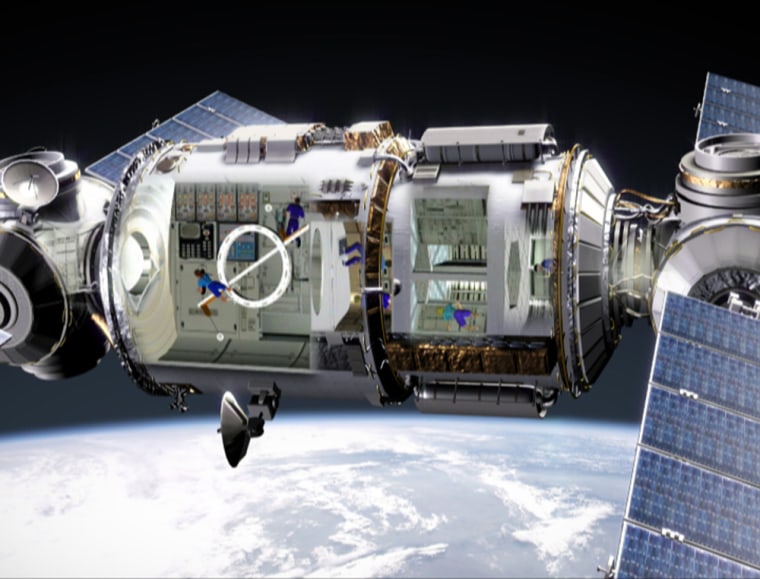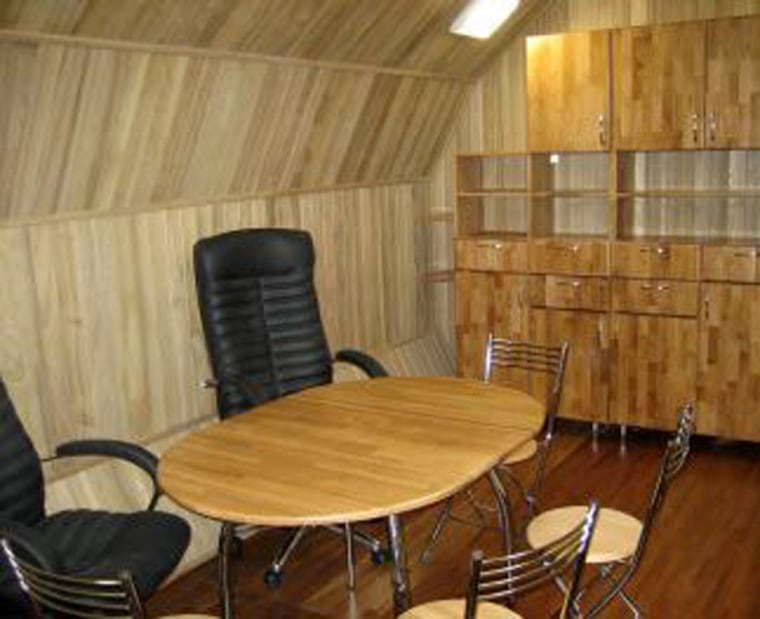The European Space Agency will partner with Russian researchers to lock a crew of six people in metal tubes for a simulated trip to Mars.
Known as Mars500, the simulated space mission will take place in an isolation facility in Russia, allowing organizers to study the difficulties presented by such a lengthy spaceflight. The participants, selected from a pool of volunteers, will attempt to re-create all elements of an actual mission, including launch, an outboard journey, a research trip to the planet’s surface, and the return trip — all of which will take 500 days.
Locked inside the research station, the crew will have to deal with limitations such as a carefully portioned food supply, 20-minute delays in communication and simulated emergencies, with the further possibility of real medical emergencies arising.
The study, organized by the Russian Institute for Biomedical Problems, will now include experiments being sought out by the ESA for the participants to carry out during their extended period of sequestration. The ESA will be a full partner in the project, with major funding from Russia’s Federal Space Agency and significant involvement by the Russian Academy of Sciences.
The spaceship mock-up will include areas for research, medicine, habitation and a kitchen, having a total area of 200 square meters (2,150 square feet), connected only by narrow passages. Further, a special tank will be provided to represent a descent vehicle for travel to the Martian surface.

The ESA said the experiment would start in the spring of 2008. The six participants, who will be away from home and family for more than 18 months, will be drawn from volunteers in the general populace. They are expected to possess medical, engineering and scientific qualifications, although physical characteristics might be less emphasized for this project.
ESA scientist Marc Heppener described the space agency's interest in joining the experiment in an ESA interview: "Our main interest is to look at the psychology of such a mission, knowing that you are enclosed for 500 days. As soon as there is a problem, the crew knows that they are on their own, and they have to solve it themselves. The only help available from the outside is through communications which may take up to 40 minutes. ... There will be one person amongst the crew with real medical training. But of course that person can also fall ill. So you have to have all kinds of backup scenarios."
The potential for scientific research during the mock mission are numerous, according to Heppener: "We have a first-draft list of the kind of science we are looking for … the influence of confinement on sleep, mood and mental health, and the effect of differences in personality, cultural background and motivation. But also on the medical side — physiological adaptation to an isolated environment, stress effects on health and well-being, changes in the immune system."
The ESA will simultaneously consider proposals for similar research at the Concordia Antarctic research station, which offers a contrasting stark environment.
When asked if Mars500 might be compared to a reality-TV show, Heppener noted that both the show and the simulation "look at interaction between people in all kinds of different situations."
"If you want, there is even a prize at the end — not in the simulation, but if it is a real mission, you will be the first person to walk on the surface of Mars, which is a huge prize!" he said. "The comparison comes to a very sharp dead end, though — we will do a serious science experiment."
